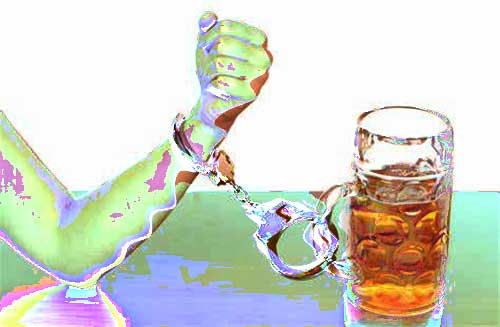
Selective serotonin reuptake inhibitors (SSRIs) are a type of antidepressant medication. They are commonly prescribed to treat depression, anxiety, and other mental health conditions.
SSRIs work by increasing the levels of serotonin, a neurotransmitter that plays a role in mood regulation. Serotonin levels can be low in people with depression, anxiety, and other mental health conditions.
While SSRIs are generally safe and effective, they can sometimes cause side effects. One of the potential side effects of SSRIs is increased alcohol consumption.
This is thought to be because SSRIs can interact with the brain’s reward system and make alcohol more pleasurable. SSRIs can also reduce the negative consequences of alcohol intoxication, which can lead to people drinking more.
In a small number of cases, SSRIs can trigger severe alcohol use disorder in people who have never had a problem with alcohol before. This is thought to be more likely in people who have a family history of alcoholism or who have other risk factors for alcohol abuse.
If you are taking an SSRI and you notice that you are drinking more alcohol or that your alcohol cravings have increased, it is important to talk to your doctor. They may be able to adjust your medication or recommend other treatment options.
Here is an example of how severe alcohol use disorder can develop after starting SSRI therapy:
- A person is diagnosed with depression and starts taking an SSRI.
- At first, the SSRI helps to improve their mood and reduce their depressive symptoms.
- However, the person also notices that they are starting to drink more alcohol.
- They may find that alcohol helps them to feel more relaxed and sociable.
- Over time, the person’s alcohol use increases to the point where they are drinking heavily on a regular basis.
- They may experience withdrawal symptoms if they try to stop drinking.
- The person’s alcohol use is interfering with their work, relationships, and overall health.
If you are concerned that you or someone you know may be developing severe alcohol use disorder after starting SSRI therapy, it is important to seek professional help.
Prevention and treatment
If you are taking an SSRI and you are concerned about the risk of developing alcohol use disorder, it is important to talk to your doctor. They can help you to develop a plan to reduce your risk and to identify early warning signs of alcohol abuse.
Here are some tips for preventing alcohol use disorder:
- Be aware of the potential risks associated with SSRIs and alcohol consumption.
- Talk to your doctor about your alcohol use before starting SSRI therapy.
- Set limits on your alcohol consumption and stick to them.
- Avoid drinking alcohol to cope with stress or negative emotions.
- Find other healthy ways to manage stress, such as exercise, relaxation techniques, or spending time with loved ones.
If you have already developed alcohol use disorder, it is important to seek professional help. There are a number of effective treatments available, including individual therapy, group therapy, and medication-assisted treatment.
Treatment for alcohol use disorder
Treatment for alcohol use disorder typically involves a combination of approaches, such as:
- Individual therapy: This can help you to identify and address the underlying causes of your alcohol use disorder, and to develop coping skills to manage your cravings and urges.
- Group therapy: This can provide you with support and camaraderie from other people who are also struggling with alcohol use disorder.
- Medication-assisted treatment: This can involve taking medications to help reduce your cravings and urges, and to make it easier to abstain from alcohol.
If you are concerned that you or someone you know may have developed alcohol use disorder after starting SSRI therapy, please seek professional help. With the right treatment, you can recover from alcohol use disorder and live a healthy and fulfilling life.
Citation